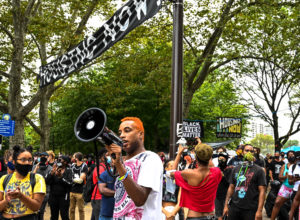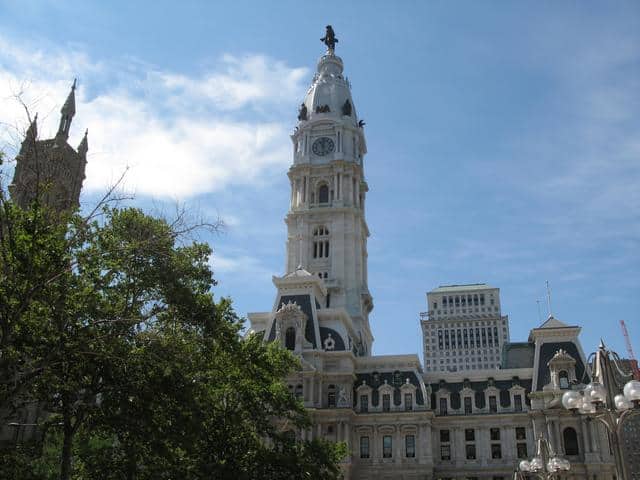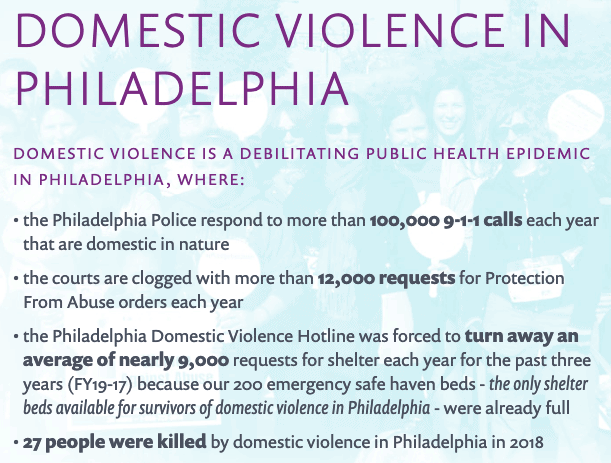 CITY COUNCIL ANNOUNCES LEGISLATION TO GENERATE $400 MILLION TO INVEST IN AFFORDABLE HOUSING, POVERTY REDUCTION AND JOB CREATION
CITY COUNCIL ANNOUNCES LEGISLATION TO GENERATE $400 MILLION TO INVEST IN AFFORDABLE HOUSING, POVERTY REDUCTION AND JOB CREATION
City Council leaders yesterday announced legislation to generate $400 Million in bond proceeds, which will be used to fund citywide investments in affordable housing, poverty reduction and job creation. Council introduced a 1 percent Construction Impact Tax, to be imposed on the privilege to build any structure – residential, commercial or industrial – for which a building permit is required.
Revenues from the Construction Impact Tax will be utilized with the bond issue to fund an array of essential city programs that focus on affordable housing and neighborhood revitalization, including the production of new and preservation of existing affordable housing, eviction prevention, adaptive home modification, rental assistance, permanent housing for homeless individuals, neighborhood commercial corridor investment and other initiatives.
“In June, City Council passed a New Normal Budget Act that was a first step towards addressing the social ills and racial disparities magnified by the COVID-19 pandemic and civil unrest,” said Council President Darrell L. Clarke (5th District). “Our announcement Thursday builds on the New Normal Act and the recommendations in Council’s Poverty Action Plan, released in March. There is no time to wait. Poverty is growing, and these needs are urgent. We need to act now to fund programs that will create a more prosperous future for every Philadelphian, rather than a select few.”
The proposal, introduced by Council Majority Leader Cherelle Parker (9th District) on Council President Clarke’s behalf, proposes to capitalize revenue streams, including the 1 percent Construction Tax, by issuing $400 million in new bonds.
“We can’t sit by idly during this time and wait for someone to come to our rescue; we must be proactive,” Parker said. “This legislation will generate close to a half billion dollars that will impact the lives of our most vulnerable residents who have been hurt most directly by the coronavirus. It will help those in poverty to rise out of it, prevent those living on the margins from falling further behind, and create sustainable jobs and opportunities for those who need them the most right now.”
City Council introduced the Construction Tax previously; it passed narrowly in 2018, but faced heavy opposition from the construction industry and the building trades. A compromise was reached between Mayor Kenney and Council that saw the legislation withdrawn, in exchange for revenues from expiring tax abatements being directed into affordable housing initiatives.
Yesterday, Council introduced the Construction Tax again, but it also introduced legislation offered by Councilmember Bobby Henon (6th District) that delays the scheduled rollback of the city’s Real Estate Tax Abatement program by three years – an action likely to meet with favor from the construction industry and the unions.
Councilmember Maria Quiñones Sánchez (7th District), a co-chair of Council’s Special Committee on Poverty Reduction and Prevention, alluded to the interlocking nature of the two proposals at a news conference in North Philadelphia, at a vacant lot where a non-profit group, Asociación Puertorriqueños en Marcha (APM), wants to build more affordable housing.
“These proposals are a give and a take,” Quiñones Sánchez said. “The construction industry is going to be paying this tax. We need to do something to work with them, too. Diverse neighborhoods will not happen unless government steps in. That’s what we’re doing here today.”
President Clarke directly addressed the perception of some that the School District of Philadelphia’s loss (by a delayed implementation of the abatement rollback) could be the building industry’s gain.
Clarke estimated that delaying the tax abatement reductions would cost about $4 million in taxes for the school district. But the construction tax will generate enough to fund a $400 million bond issue, which he said will generate an estimated $71 million in new tax revenues.
Asked by reporters whether Council leadership has spoken with Mayor Kenney about the tax proposals, Clarke replied: “The mayor is on board.”
Clarke was joined in North Philadelphia by Councilmembers Quiñones Sánchez, Parker, Deputy Whip Mark Squilla (1st District) and Katherine Gilmore Richardson (At Large). Also joining them was Nilda Ruiz, executive director of APM.
“Good things really are happening right here in Philadelphia,” Ruiz said.
COUNCILMEMBERS INTRODUCE “RIGHT TO RETURN” BILL FOR HOSPITALITY WORKERS
Legislation establishing a Right to Return for hospitality industry workers was announced by City Councilmembers Helen Gym (At Large), Kenyatta Johnson (2nd District), and Isaiah Thomas (At Large).
The legislation ensures that hospitality workers displaced by the COVID-19 pandemic can return to their jobs as the industry reopens. By extending a Right to Return through the end of the public health emergency, the City could prevent discrimination in rehiring, stop investors from replacing experienced workers, and prohibit retaliation by employers.
Of the 7.5 million leisure and hospitality jobs nationally eliminated in April, only half have thus far been added back. As of September, the national unemployment rate among leisure and hospitality employees was 19 percent, the highest level of all industries measured by the Bureau of Labor Statistics.
The package contains three bills:
- Councilmember Gym’s bill requires hotels, the airport, and event centers to offer jobs back to workers, who lost their jobs because of COVID-19, based on seniority.
- Councilmember Johnson’s bill amends an existing law to ensure that seasonal workers at the sports complex, and food service workers at Philadelphia International Airport, are not replaced in the event that a new contractor takes over services at their workplace.
- Councilmember Thomas’ bill protects workers’ jobs in the event that a hotel is sold or goes through foreclosure.
In Philadelphia, these workers are disproportionately Black and female – over-representing many of the same groups of people hardest hit by the pandemic.
“This Right to Return legislation secures economic justice for thousands of Philadelphia’s workers in the hospitality industry,” said Councilmember Gym. “As our economy reopens, it must be our top priority to protect the jobs of thousands of working-class Black and Brown Philadelphians that their families depend on. We can build an economic recovery that starts with the wellbeing of workers and their families.”
COUNCILMEMBERS REACT TO THE RESOLUTION OF NORTH PHILADELPHIA, BEN FRANKLIN PARKWAY ENCAMPMENTS
 After months-long stalemates in encampments of homeless individuals on the Ben Franklin Parkway and in North Philadelphia, both encampments are suddenly coming to a close. First, Philadelphia Housing Authority (PHA) officials announced the North Philadelphia encampment would end, and that vacant PHA properties would be made available to homeless individuals from that encampment – clearing the way for a $52 Million mixed-use development to be announced on Wednesday to cheers from the nearby community.
After months-long stalemates in encampments of homeless individuals on the Ben Franklin Parkway and in North Philadelphia, both encampments are suddenly coming to a close. First, Philadelphia Housing Authority (PHA) officials announced the North Philadelphia encampment would end, and that vacant PHA properties would be made available to homeless individuals from that encampment – clearing the way for a $52 Million mixed-use development to be announced on Wednesday to cheers from the nearby community.
Then, Mayor Kenney announced that the larger encampment on the Parkway would close down, and again, that housing would be made available to encampment residents at different sites and locations around the city.
Councilmembers Jamie Gauthier (3rd District) and Kendra Brooks (At Large), who were involved in the negotiations concerning the Parkway encampment, praised the deals reached with the city and PHA over the sites.
“This agreement marks a key step on the path towards housing justice in our city, but the road continues,” the members said in a joint statement. “Even before COVID-19, far too many Philadelphia residents had the threat of homelessness looming over their heads – and now that number has increased dramatically. The urgency of our city’s housing crisis has never been more immediate, with tens of thousands of Philadelphians out of work and unable to pay rent. As we continue to navigate the pandemic and its economic impacts, City leaders will need to work hand-in-hand with social movements to continue these vital efforts. Justice is attainable, it is worth staying the course, and it is our responsibility as elected officials to do everything in our power to achieve it.”
Council President Clarke, whose 5th District included both encampment sites, issued a statement when the PHA-North Philadelphia encampment was resolved, saying:
“We applaud President Kelvin Jeremiah and the Philadelphia Housing Authority for reaching an agreement that enables a $52 million mixed-use development that is urgently needed by the North Philadelphia community to move forward. The issues that City Council has spoken about all year – racial disparities magnified by the COVID-19 pandemic, a lack of access to healthy foods, adequate health care and affordable housing – are all being addressed by this development. In addition, the developer of this site is a black-owned firm, who is committed to employing people from North Philadelphia to build this site and to work in the businesses that will open there. A supermarket, a bank for North Philadelphia, affordable housing units, an urgent care facility – can all now be built, thanks to this agreement.”
SEEN ON SOCIAL MEDIA…
The City Commissioners, @PhillyVotes, are hiring Clerical Assistants to help staff and open satellite election offices, starting immediately.
Apply TODAY at https://t.co/94oDw3yl1A#jobs #Election2020 pic.twitter.com/PObZfLOcfZ
— PHLCouncil (@PHLCouncil) October 14, 2020
IN OTHER NEWS…
 Council Recognizes October as Domestic Violence Awareness Month. The resolution, sponsored by Councilmember Derek Green (At Large), offered sobering statistics. Every year, Philadelphia Police respond to more than 100,000 domestic-related calls. Nationally, 24 people are victims of physical violence, rape or stalking by an intimate partner in the United States every minute — more than 12 million people over the course of a year and resulting in the loss of life of more than three individuals each day. The resolution noted that Women Against Abuse and other agencies are partnering with the Kenney administration’s Office of Domestic Violence Strategies, and 70 different community stakeholders, to implement Shared Safety: Philadelphia’s Response to Relational Violence, a citywide plan to respond to domestic violence in Philadelphia.
Council Recognizes October as Domestic Violence Awareness Month. The resolution, sponsored by Councilmember Derek Green (At Large), offered sobering statistics. Every year, Philadelphia Police respond to more than 100,000 domestic-related calls. Nationally, 24 people are victims of physical violence, rape or stalking by an intimate partner in the United States every minute — more than 12 million people over the course of a year and resulting in the loss of life of more than three individuals each day. The resolution noted that Women Against Abuse and other agencies are partnering with the Kenney administration’s Office of Domestic Violence Strategies, and 70 different community stakeholders, to implement Shared Safety: Philadelphia’s Response to Relational Violence, a citywide plan to respond to domestic violence in Philadelphia.
The COVID-19 pandemic has further complicated the effort to reduce relational violence as many experiencing domestic violence found themselves isolated in quarantine with their abusers. Philadelphia advocacy organization Woman Against Abuse has assembled resources to help those experiencing abuse create a safety plan. These include strategies to staying safe inside your home, with your children, and phone numbers for emergency and legal resources.
OTHER SIGHTS AND SOUNDS FROM THE COUNCIL WEEK
Committee on Public Health and Human Services, held 10-13-2020
Committee on Labor and Civil Service, held 10-14-2020
Stated Meeting of Philadelphia City Council, held 10-15-2020
NEXT WEEK IN PHILADELPHIA CITY COUNCIL
Monday, October 19. 2020
Committee on Rules 9:30am
Committee on Law and Government 1:00pm
Tuesday, October 20, 2020
Committee on Public Safety 9:30am
Wednesday, October 21, 2020
Committee on Housing, Neighborhood Development and the Homeless 9:30am
Committee on the Disabled and Persons with Special Needs 2:00pm
Thursday, October 22, 2020
Stated Meeting of Philadelphia City Council 10:00am
Friday, October 23, 2020
Committee on the Disabled and Persons with Special Needs 9:30am
PHILADELPHIA FACTS AND FIGURES
The next Stated Meeting of City Council is scheduled to take place on Thursday, October 22, 2020 at 10 a.m. The Meeting will be held remotely due to the ongoing pandemic, and will air on Xfinity Ch. 64, Fios Channel 40 and stream at www.PHLCouncil.com/watch.



